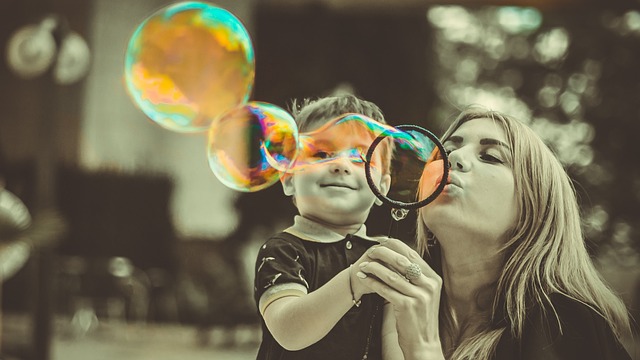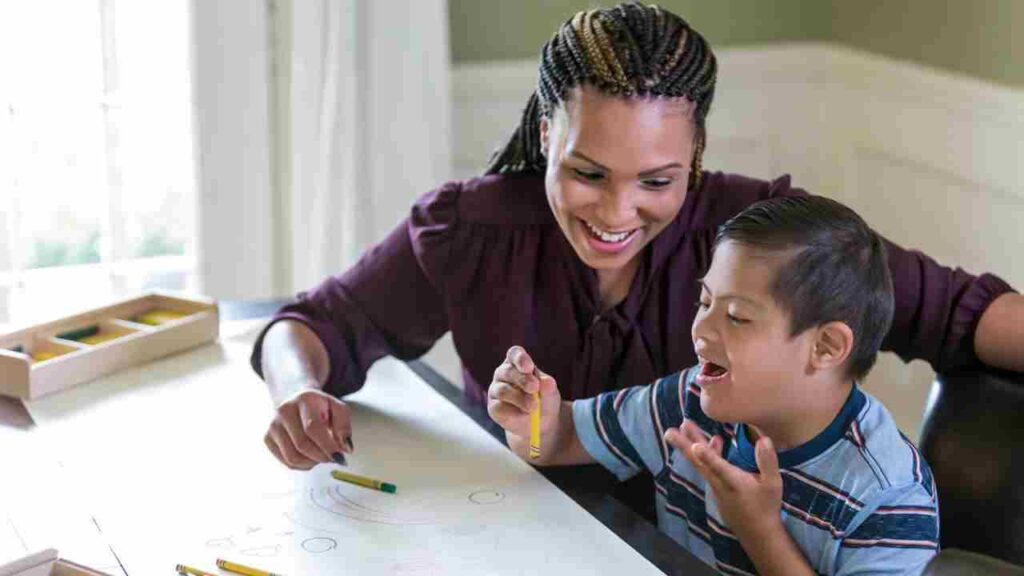Neurodivergence refers to differences in brain function and neurological wiring compared to what is considered “typical”. Common neurodivergent profiles include autism, ADHD, dyslexia, and more. Neurodivergent individuals often communicate, socialize, and think differently than neurotypical people.
Love languages refer to the different ways we express and interpret love and affection in relationships. The five main love languages are words of affirmation, acts of service, receiving gifts, quality time, and physical touch. Understanding someone’s primary love language allows you to better express affection in a way they’ll recognize.
For neurodivergent individuals, differences in communication, sensory perception, and social-emotional skills can shape their unique love languages. What makes one person feel cared for may not work as well for someone wired differently. Examining the interaction between neurodivergence and love languages provides insight into building stronger connections in neurodiverse relationships.
1. Physical Touch
For neurodivergent individuals, physical touch can be an important part of feeling loved and cared for. However, consent, comfort levels, and sensory needs must be respected.
Many neurodivergent people experience differences in sensory processing that make certain types of touch enjoyable and others unpleasant or even painful. Light touches may feel ticklish or overwhelming. Firm hugs or deep pressure can satisfy sensory cravings. Understanding your partner’s preferences is key. Always ask before initiating physical contact and check in if you notice signs of distress.
Consent should be ongoing, not just a one-time discussion. Needs and boundaries can fluctuate day-to-day or moment-to-moment. For example, a hug may be welcomed in the morning but seem intolerable after a stressful workday. Tune into nonverbal cues and allow your partner to revoke consent at any time, even mid-embrace.
When done right, consensual physical affection provides security and regulates emotions. The oxytocin released can ease anxiety, strengthen connections, and demonstrate love in a sensory manner. Discuss creative solutions if certain types of touch are off-limits. Holding hands, stroking hair, massages, and sitting close can fulfill this need.
2. Words of Affirmation
For those whose love language is words of affirmation, hearing things like “I love you,” “I appreciate you,” or specific compliments feels most meaningful. Neurodivergent people who thrive on words of affirmation may feel insecure and unloved without direct positive statements. They want to hear specific compliments, not vague generalizations. Sincerity is key – generic phrases don’t have the same effect as direct, genuine affirmations.
Partners can make a big impact by regularly verbalizing affection, appreciation, admiration, and support. Simple phrases like “You’re doing a great job,” “You look nice today,” or “Thank you for doing the dishes” can go a long way. On the other hand, insults, criticisms, and insensitive language can be very hurtful. This love language is all about the power of words to build up your partner’s confidence.
3. Quality Time
For neurodivergent individuals, quality time often means focused one-on-one interaction in a calm, structured environment. Loud, chaotic surroundings can quickly become overwhelming. Making time for regular routines and rituals is important.
Partners can make an effort to eliminate distractions and noise during quality time. Turn off the TV, put phones on silent, and find a quiet space to talk and connect. Scheduling regular date nights or activities provides reassurance. Adapt activities to accommodate sensory needs – some may prefer quiet walks outdoors over loud restaurants. Be understanding if plans suddenly need to change.
Focus on being fully present and engaged during quality time together. Make eye contact, put away devices, and avoid multitasking. Some neurodivergent individuals process emotions differently and may need more time to open up. Patience and active listening help build trust and intimacy.
Prioritize consistency, but also variety and trying new experiences together. Fun routine activities like cooking a meal together one night a week provide regular quality time. But also set aside time for novel dates and shared adventures to prevent boredom. Finding the right balance caters to cravings for both consistency and excitement.
4. Acts of Service
One of the five love languages is acts of service. For neurodivergent individuals, acts of service often involve helping with tasks that are challenging or stressful for them. This may include household chores, errands, paperwork, making appointments, childcare, or other responsibilities.
Neurodivergent brains are often wired differently, which can make certain tasks more difficult. For example, executive functioning challenges like organization, time management, and planning can make household chores a struggle. Sensory issues around noise, lighting, textures, or scents can make errands overwhelming. Processing and communication differences can make phone calls and appointments exhausting.
Partners and loved ones can show their care and affection by offering to help with these tasks. Taking the garbage out, doing the laundry, cleaning the bathroom, running an errand, or making a difficult phone call are all acts of service. They remove stress and tangibly demonstrate love.
Neurodivergent individuals need to communicate which tasks are most challenging or stressful for them. Their partner may not automatically know where help is most needed and appreciated. Gently guiding a partner to assist with certain chores, responsibilities, or situations that require executive functioning or social skills can greatly improve quality of life.
Acts of service allow neurodivergent individuals to focus time and energy on their strengths and interests, rather than becoming overwhelmed by day-to-day tasks. It also strengthens the bond between partners as they work together to overcome challenges with compassion.
5. Receiving Gifts
Gifts are one of the key ways that people on the neurodiverse spectrum feel most loved in a relationship. Individuals who have this as their primary love language deeply value gifts as expressions of thoughtfulness, care, and affection.
For people with this love language, the gifts themselves are less important than the meaning behind them. They don’t need expensive or lavish presents. Rather, they appreciate gifts that show that their partner pays attention to their interests, listens to them, knows what they like, and wants to make them happy. The gift is a physical symbol of the care and effort the giver put into the relationship.
Practical, sensory gifts tend to be most appreciated by those with this love language. Things they can use in their daily life or hobbies, items that appeal to their senses, or gifts that relate to their special interests show that their partner understands them on a deeper level. Handmade gifts also tend to be treasured. Even small, inexpensive presents can feel extra meaningful when they demonstrate thoughtfulness, care, and personalization.
Partners can nurture this love language by making gift-giving a consistent part of the relationship. They don’t need to go overboard but look for regular opportunities to find or create small gifts that show their partner they are listened to, known, and cared for. The gifts themselves aren’t as important as the message behind them. With this consistent thoughtfulness, their partner will feel truly loved.
Tips for Partners
Having a neurodivergent partner can be rewarding, but also comes with its unique challenges. Here are some tips for being a supportive partner to someone who is neurodivergent:
- Practice open communication. Make space for your partner to share their needs and perspectives without judgment. Check-in regularly to understand their experiences and how you can best support them. Be patient, and don’t make assumptions.
- Remain flexible. Rigidity and strict routines may stress your neurodivergent partner. Be open to trying different approaches and making accommodations to help meet their needs. Respect their boundaries while also compromising at times.
- Educate yourself. Learn about your partner’s neurotype so you can better empathize with their wiring and needs. Seek to understand their unique strengths and challenges. Knowledge promotes compassion.
- Help manage overstimulation. If certain environments or activities overstimulate your partner, collaborate to find adaptive solutions. This may involve leaving early, using noise-canceling headphones, or having soothing items on hand.
- Focus on the positive. Don’t just notice limitations – celebrate their gifts and talents too. Find activities you both enjoy that allow them to use their abilities. Share what you admire about them.
- Advocate when needed. Be willing to speak up if others misunderstand your partner’s behavior. Educate family and friends when appropriate. Help foster acceptance.
With openness, creativity, and mutual support – neurodivergent partnerships can thrive. The key is embracing each person’s unique needs and humanity.
Tips for Individuals
Self-advocacy and setting healthy boundaries are essential for neurodivergent individuals in relationships. Here are some tips:
- Learn about your specific needs and challenges. Do research to understand your neurotype and how it impacts your relationships.
- Communicate clearly about your needs. Don’t expect partners to intuit what you require. Verbally express your relationship preferences.
- If certain environments or interactions are stressful, politely excuse yourself when needed. Don’t force yourself into intolerable situations.
- Request accommodations to make social gatherings more comfortable. For example, ask for quiet spaces, sensory tools, or advance notice before attending large events.
- Help partners understand how to support you. Provide education, resources, and guidance around your neurodivergence.
- Give positive feedback when your needs are met. Reinforce behaviors and environments that work for you.
- Set boundaries around touch, communication frequency, alone time, and other relationship needs. Stick to your boundaries consistently.
- Seek counseling or support groups to practice self-advocacy. Surround yourself with people who validate your neurotype.
- Leave unhealthy relationships that refuse accommodation. You deserve fulfillment on your terms.
The key is honoring your authentic self while communicating needs compassionately. With self-knowledge, boundaries, and advocacy, neurodivergent individuals can foster healthy, loving relationships.
Therapy and Support
For neurodivergent individuals and their partners, therapy and support groups can provide essential tools for navigating relationships.
Couples Counseling
Seeing a counselor who specializes in neurodivergent relationships can help partners better understand each other’s needs. Counseling provides a safe space to work through conflicts, identify triggers, and find compromise. Partners can learn new communication techniques and be encouraged to embrace each other’s differences.
Counselors help couples set healthy boundaries, reconcile their love languages, and develop realistic expectations. They often assign “homework” tailored to the relationship’s specific challenges. With professional guidance, partners gain insight into their own and each other’s behavior.
Support Groups
In addition to counseling, joining a support group can help neurodivergent individuals connect with others facing similar relationship issues. Support groups reduce isolation and provide community. Members swap advice, share resources, and feel understood by peers navigating comparable dynamics.
Groups specifically for the neurodivergent allow members to be their authentic selves without judgment. They create space to openly discuss topics like sensory needs, social difficulties, or executive functioning challenges. Support groups help individuals feel less alone while learning how others have found relationship success. They provide motivation, hope, and normalization.
Whether through counseling or peer support, therapeutically addressing neurodivergent relationships fosters mutual understanding and healthier connections. With greater awareness and communication skills, partnerships can truly thrive.
Conclusion
Understanding and embracing neurodivergence is so important for healthy, happy relationships. Each person expresses and experiences love differently, and that diversity should be celebrated.
The five love languages outlined in this article – physical touch, words of affirmation, quality time, acts of service, and receiving gifts – reflect some of the most common ways neurodivergent individuals feel and show love. But every person is unique, even within these categories. The key is to communicate openly, observe your partner’s behaviors, and find creative ways to make them feel appreciated.
While neurotypical patterns can provide a helpful framework, avoid trying to fit someone into a box. Get to know them as an individual. Also, make sure to advocate for your own needs and preferences. This mutual acceptance allows each person to thrive.
With compassion and understanding, partners can navigate their differences successfully. Counseling or group support can also help uncover insights. The reward is a relationship where both people feel genuinely seen, valued, and loved.






